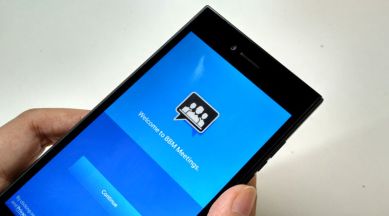Nandagopal Rajan writes on technology, gadgets and everything related. He has worked with the India Today Group and Hindustan Times. He is an alumnus of Calicut University and Indian Institute of Mass Communication, Dhenkanal. ... Read More
Tags:

The transformation of BlackBerry is near complete. The Canadian smartphone maker is now an enterprise facing software company and it has some aces up its sleeve. BlackBerry India MD Sunil Lalvani says the company is convinced that its strengths lie in being the most secure smartphone ecosystem and its ability to offer the best keyboard and virtual typing experience. Its next big launch will be the slider which will tap into all of these strengths.
[related-post]
Lalvani says they are going back to their core customers with the new product offering from BlackBerry. “The beauty of these products are that they work across platforms. We are telling them that they do not have to throw out existing devices or move to BlackBerry and can continue using existing low cost Androids. But think about security,” Lalvani says.
The company is now pushing its virtual sim technology, a product created by Movertu, to service providers in India. With this technology consumers as well as corporates will be able to virtualise up to nine numbers in a single SIM, thus negating the need to carry multiple phones or SIM cards. However, the product will initially be limited to numbers from a single service provider due to regulatory hurdles.
Similarly, the company hopes its new BlackBerry Meetings app, that lets users organise video chats seamlessly with up to 25 others across platforms and devices, will find takers among small and large Indian companies. Interstingly, only the initiator of the conversation will pay for the data. The company hopes it will make users move from costlier video conferencing solutions like Polycom.
Even BlackBerry’s flagship Messenger software, which even now has over 100 million active users, is slowly shifting to an enterprise-first model. “The problem with services like Whatsapp is that your phone number is your identity and anyone can reach out to you. But on BBM it us your PIN and that is more secure,” Lalvani says, adding that corporates are looking at OTT services as a security threat too as employees could share sensitive information on it. The new BBM Protected gives encrypted chats across platforms and lets people share documents too, but not outside the service. “The control here is always with the server and everything is audited and logged.”